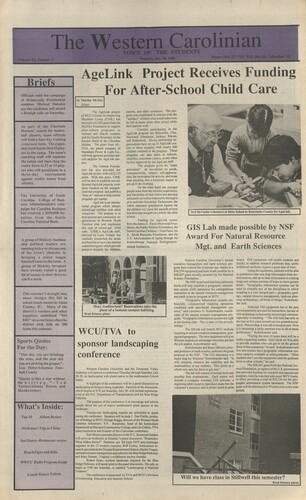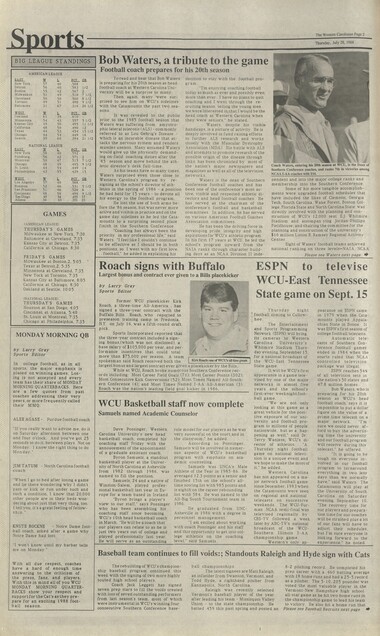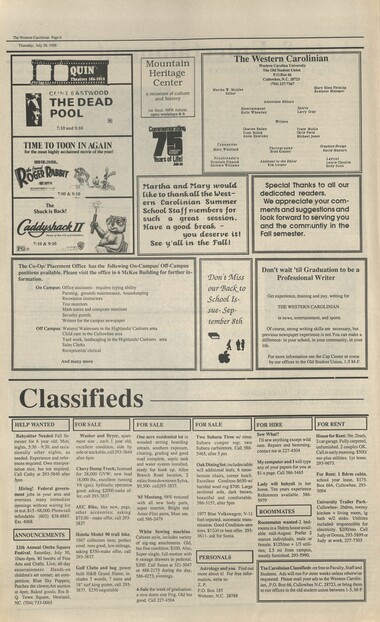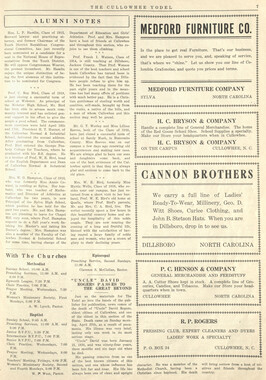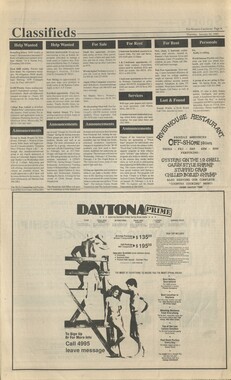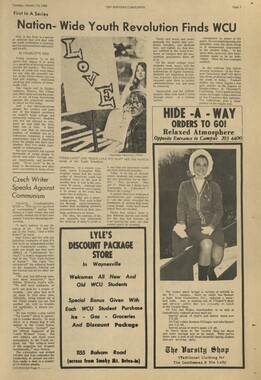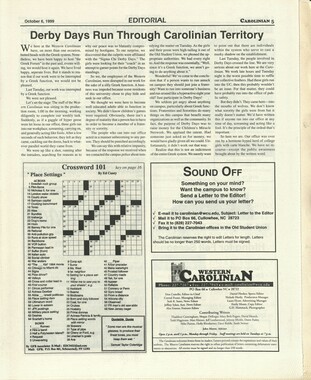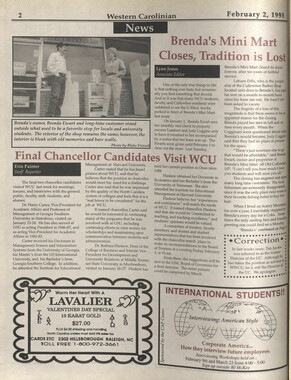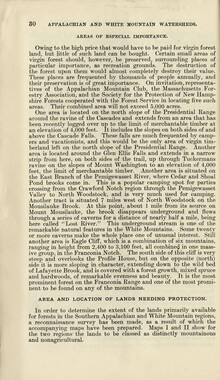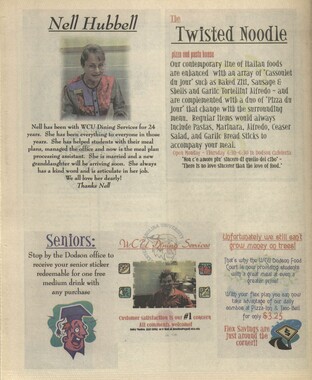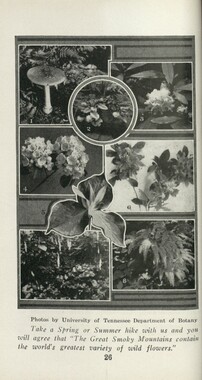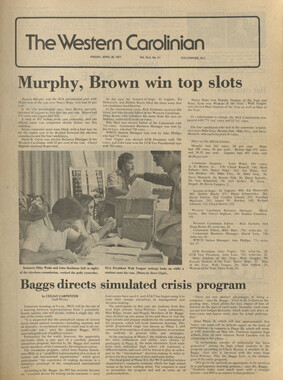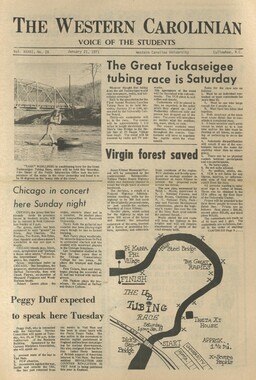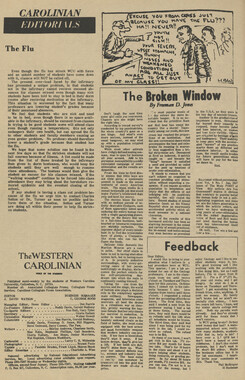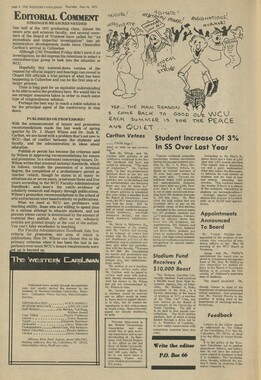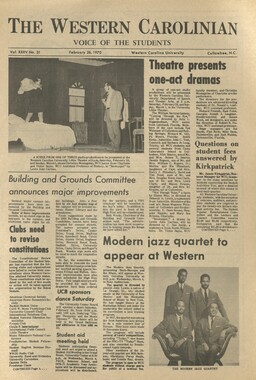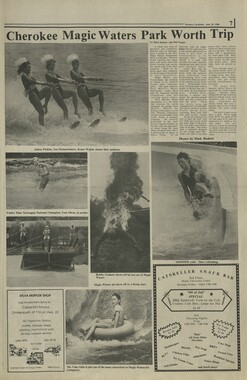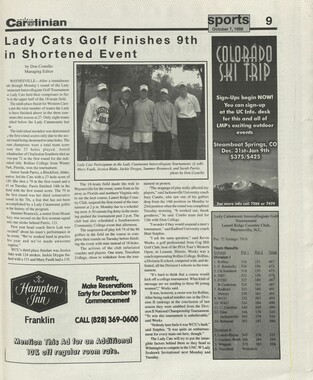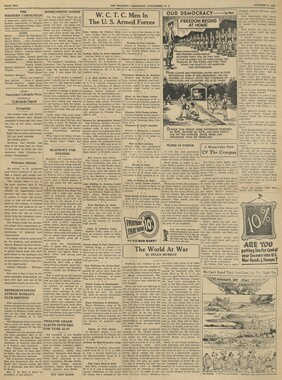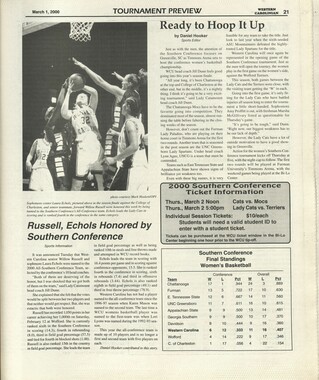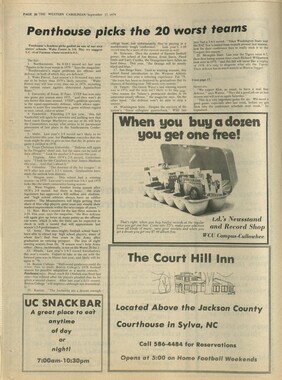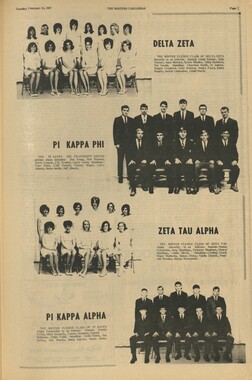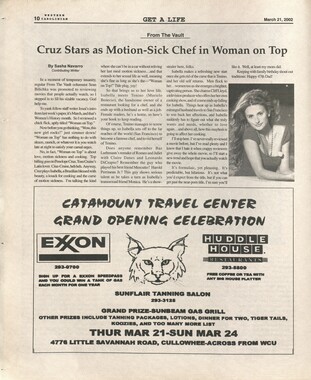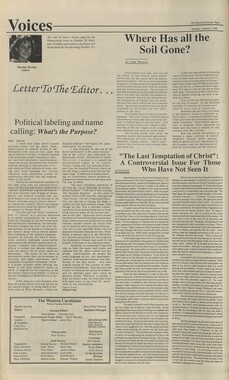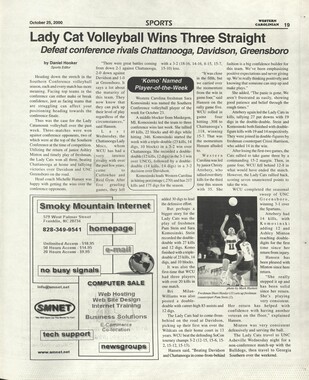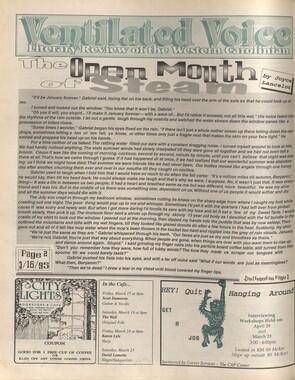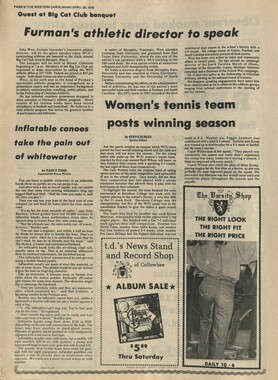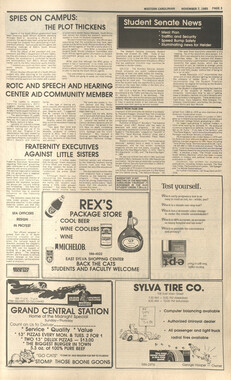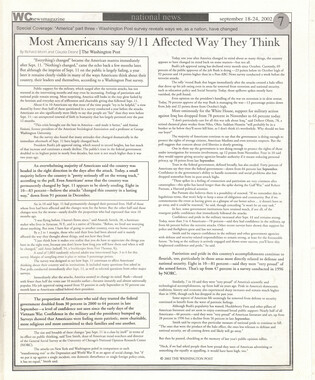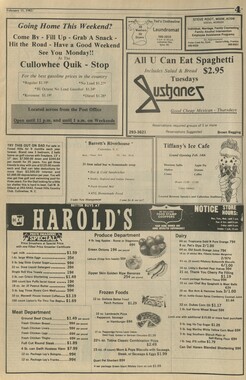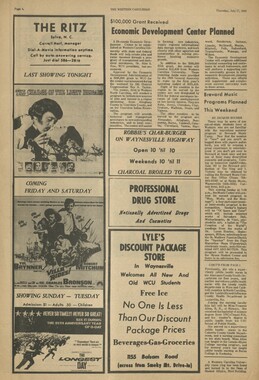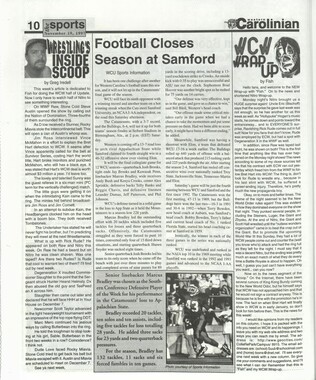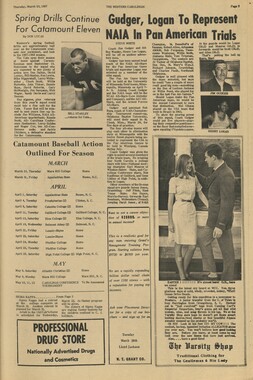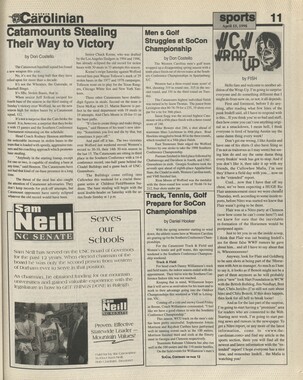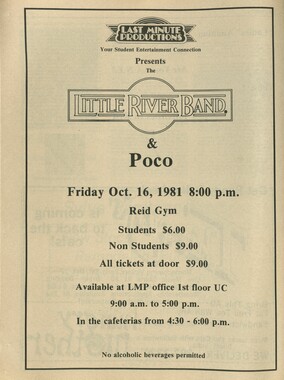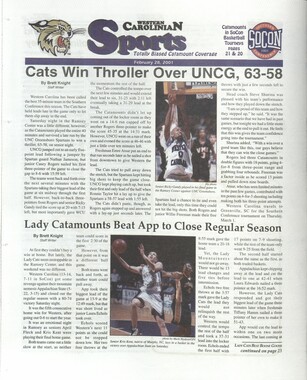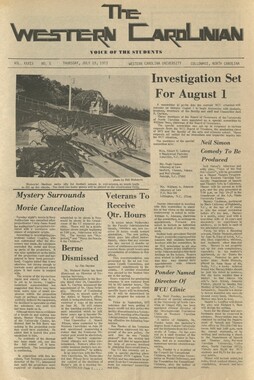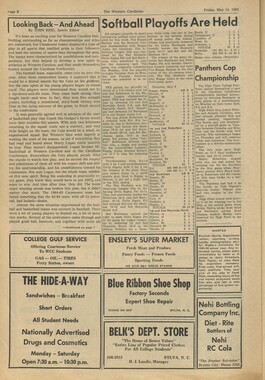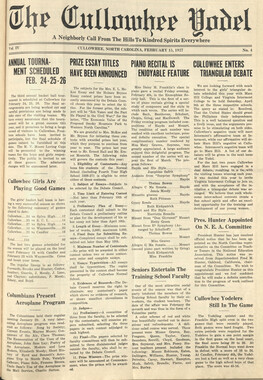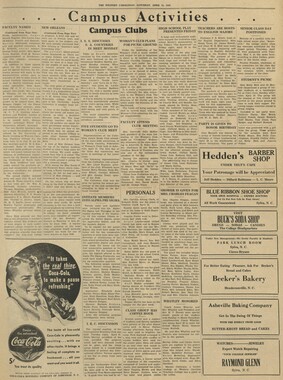Western Carolina University (20)
View all
- Canton Champion Fibre Company (2308)
- Cherokee Traditions (293)
- Civil War in Southern Appalachia (165)
- Craft Revival (1942)
- Great Smoky Mountains - A Park for America (2767)
- Highlights from Western Carolina University (430)
- Horace Kephart (941)
- Journeys Through Jackson (154)
- LGBTQIA+ Archive of Jackson County (26)
- Oral Histories of Western North Carolina (314)
- Picturing Appalachia (6772)
- Stories of Mountain Folk (413)
- Travel Western North Carolina (160)
- Western Carolina University Fine Art Museum Vitreograph Collection (129)
- Western Carolina University Herbarium (92)
- Western Carolina University: Making Memories (708)
- Western Carolina University Publications (2283)
- Western Carolina University Restricted Electronic Theses and Dissertations (146)
- Western North Carolina Regional Maps (71)
- World War II in Southern Appalachia (131)
University of North Carolina Asheville (6)
View all
- Allanstand Cottage Industries (62)
- Appalachian National Park Association (53)
- Bennett, Kelly, 1890-1974 (1388)
- Berry, Walter (76)
- Brasstown Carvers (40)
- Carver, George Washington, 1864?-1943 (26)
- Cathey, Joseph, 1803-1874 (1)
- Champion Fibre Company (233)
- Champion Paper and Fibre Company (297)
- Cherokee Indian Fair Association (16)
- Cherokee Language Program (22)
- Crowe, Amanda (40)
- Edmonston, Thomas Benton, 1842-1907 (7)
- Ensley, A. L. (Abraham Lincoln), 1865-1948 (275)
- Fromer, Irving Rhodes, 1913-1994 (70)
- George Butz (BFS 1907) (46)
- Goodrich, Frances Louisa (120)
- Grant, George Alexander, 1891-1964 (96)
- Heard, Marian Gladys (60)
- Kephart, Calvin, 1883-1969 (15)
- Kephart, Horace, 1862-1931 (313)
- Kephart, Laura, 1862-1954 (39)
- Laney, Gideon Thomas, 1889-1976 (439)
- Masa, George, 1881-1933 (61)
- McElhinney, William Julian, 1896-1953 (44)
- Niggli, Josephina, 1910-1983 (10)
- North Carolina Park Commission (105)
- Osborne, Kezia Stradley (9)
- Owens, Samuel Robert, 1918-1995 (11)
- Penland Weavers and Potters (36)
- Roberts, Vivienne (15)
- Roth, Albert, 1890-1974 (142)
- Schenck, Carl Alwin, 1868-1955 (1)
- Sherrill's Photography Studio (2565)
- Southern Highland Handicraft Guild (127)
- Southern Highlanders, Inc. (71)
- Stalcup, Jesse Bryson (46)
- Stearns, I. K. (213)
- Thompson, James Edward, 1880-1976 (226)
- United States. Indian Arts and Crafts Board (130)
- USFS (683)
- Vance, Zebulon Baird, 1830-1894 (1)
- Weaver, Zebulon, 1872-1948 (58)
- Western Carolina College (230)
- Western Carolina Teachers College (282)
- Western Carolina University (1794)
- Western Carolina University. Mountain Heritage Center (18)
- Whitman, Walt, 1819-1892 (10)
- Wilburn, Hiram Coleman, 1880-1967 (73)
- Williams, Isadora (3)
- Cain, Doreyl Ammons (0)
- Crittenden, Lorraine (0)
- Rhodes, Judy (0)
- Smith, Edward Clark (0)
- Appalachian Region, Southern (2399)
- Asheville (N.C.) (1917)
- Avery County (N.C.) (26)
- Blount County (Tenn.) (161)
- Buncombe County (N.C.) (1671)
- Cherokee County (N.C.) (283)
- Clay County (N.C.) (555)
- Graham County (N.C.) (233)
- Great Smoky Mountains National Park (N.C. and Tenn.) (510)
- Haywood County (N.C.) (3522)
- Henderson County (N.C.) (70)
- Jackson County (N.C.) (4692)
- Knox County (Tenn.) (25)
- Knoxville (Tenn.) (12)
- Lake Santeetlah (N.C.) (10)
- Macon County (N.C.) (420)
- Madison County (N.C.) (211)
- McDowell County (N.C.) (39)
- Mitchell County (N.C.) (132)
- Polk County (N.C.) (35)
- Qualla Boundary (981)
- Rutherford County (N.C.) (76)
- Swain County (N.C.) (2113)
- Transylvania County (N.C.) (247)
- Watauga County (N.C.) (12)
- Waynesville (N.C.) (73)
- Yancey County (N.C.) (72)
- Aerial Photographs (3)
- Aerial Views (60)
- Albums (books) (4)
- Articles (1)
- Artifacts (object Genre) (228)
- Bibliographies (1)
- Biography (general Genre) (2)
- Cards (information Artifacts) (38)
- Clippings (information Artifacts) (191)
- Crafts (art Genres) (622)
- Depictions (visual Works) (21)
- Design Drawings (1)
- Drawings (visual Works) (184)
- Envelopes (73)
- Facsimiles (reproductions) (1)
- Fiction (general Genre) (4)
- Financial Records (12)
- Fliers (printed Matter) (67)
- Glass Plate Negatives (381)
- Guidebooks (2)
- Internegatives (10)
- Interviews (812)
- Land Surveys (102)
- Letters (correspondence) (1013)
- Manuscripts (documents) (619)
- Maps (documents) (177)
- Memorandums (25)
- Minutes (administrative Records) (59)
- Negatives (photographs) (5835)
- Newsletters (1285)
- Newspapers (2)
- Occupation Currency (1)
- Paintings (visual Works) (1)
- Pen And Ink Drawings (1)
- Periodicals (193)
- Personal Narratives (10)
- Photographs (12976)
- Plans (maps) (1)
- Poetry (7)
- Portraits (1960)
- Postcards (329)
- Programs (documents) (151)
- Publications (documents) (2237)
- Questionnaires (65)
- Scrapbooks (282)
- Sheet Music (2)
- Slides (photographs) (402)
- Songs (musical Compositions) (2)
- Sound Recordings (796)
- Specimens (92)
- Speeches (documents) (15)
- Tintypes (photographs) (8)
- Transcripts (322)
- Video Recordings (physical Artifacts) (23)
- Vitreographs (129)
- Text Messages (0)
- A.L. Ensley Collection (275)
- Appalachian Industrial School Records (7)
- Appalachian National Park Association Records (336)
- Axley-Meroney Collection (2)
- Bayard Wootten Photograph Collection (20)
- Bethel Rural Community Organization Collection (7)
- Blumer Collection (5)
- C.W. Slagle Collection (20)
- Canton Area Historical Museum (2110)
- Carlos C. Campbell Collection (282)
- Cataloochee History Project (65)
- Cherokee Studies Collection (4)
- Daisy Dame Photograph Album (5)
- Daniel Boone VI Collection (1)
- Doris Ulmann Photograph Collection (112)
- Elizabeth H. Lasley Collection (1)
- Elizabeth Woolworth Szold Fleharty Collection (4)
- Frank Fry Collection (95)
- George Masa Collection (173)
- Gideon Laney Collection (452)
- Hazel Scarborough Collection (2)
- Hiram C. Wilburn Papers (28)
- Historic Photographs Collection (236)
- Horace Kephart Collection (861)
- Humbard Collection (33)
- Hunter and Weaver Families Collection (1)
- I. D. Blumenthal Collection (4)
- Isadora Williams Collection (4)
- Jesse Bryson Stalcup Collection (47)
- Jim Thompson Collection (224)
- John B. Battle Collection (7)
- John C. Campbell Folk School Records (80)
- John Parris Collection (6)
- Judaculla Rock project (2)
- Kelly Bennett Collection (1407)
- Love Family Papers (11)
- Major Wiley Parris Civil War Letters (3)
- Map Collection (12)
- McFee-Misemer Civil War Letters (34)
- Mountain Heritage Center Collection (4)
- Norburn - Robertson - Thomson Families Collection (44)
- Pauline Hood Collection (7)
- Pre-Guild Collection (2)
- Qualla Arts and Crafts Mutual Collection (12)
- R.A. Romanes Collection (681)
- Rosser H. Taylor Collection (1)
- Samuel Robert Owens Collection (94)
- Sara Madison Collection (144)
- Sherrill Studio Photo Collection (2558)
- Smoky Mountains Hiking Club Collection (616)
- Stories of Mountain Folk - Radio Programs (374)
- The Reporter, Western Carolina University (510)
- Venoy and Elizabeth Reed Collection (16)
- WCU Gender and Sexuality Oral History Project (32)
- WCU Mountain Heritage Center Oral Histories (25)
- WCU Oral History Collection - Mountain People, Mountain Lives (71)
- WCU Students Newspapers Collection (1744)
- Western North Carolina Tomorrow Black Oral History Project (69)
- William Williams Stringfield Collection (2)
- Zebulon Weaver Collection (109)
- African Americans (390)
- Appalachian Trail (35)
- Artisans (521)
- Cherokee art (84)
- Cherokee artists -- North Carolina (10)
- Cherokee language (21)
- Cherokee pottery (101)
- Cherokee women (208)
- Church buildings (167)
- Civilian Conservation Corps (U.S.) (110)
- College student newspapers and periodicals (1830)
- Dams (103)
- Dance (1023)
- Education (222)
- Floods (61)
- Folk music (1015)
- Forced removal, 1813-1903 (2)
- Forest conservation (220)
- Forests and forestry (1058)
- Gender nonconformity (4)
- Great Smoky Mountains National Park (N.C. and Tenn.) (181)
- Hunting (38)
- Landscape photography (10)
- Logging (103)
- Maps (84)
- Mines and mineral resources (8)
- North Carolina -- Maps (18)
- Paper industry (38)
- Postcards (255)
- Pottery (135)
- Railroad trains (71)
- Rural electrification -- North Carolina, Western (3)
- School integration -- Southern States (2)
- Segregation -- North Carolina, Western (5)
- Slavery (5)
- Sports (452)
- Storytelling (245)
- Waterfalls -- Great Smoky Mountains (N.C. and Tenn.) (66)
- Weaving -- Appalachian Region, Southern (280)
- Wood-carving -- Appalachian Region, Southern (328)
- World War, 1939-1945 (173)
Western Carolinian Volume 54 Number 03
Item
Item’s are ‘child’ level descriptions to ‘parent’ objects, (e.g. one page of a whole book).
-
-
The Western Carolinian Volume 54, Number 3 VOICE OF THE STUDENTS Thusday,July28,1988 Phone (704) 227-7267 P.O. Box 66, Cullowhee, NC Briefs Officials with the campaign of Democratic Presidential nominee Micheal Dukakis say the candidate will attend a Raleigh rally on Saturday. As part of the Charlotte Hornets' search for basketball players, team officials will hold a four-day training camp next week. The expansion team has invited 33 players to the camp. The team's coaching staff will examine the talent and then chop the roster down to 12 or 15 players who will participate in a three-day tournament against rookie teams from Atlanta. The University of South Carolina College of Business Administration's campaign for Carolina Business has received a $150,000 donation from the South Carolina National Bank. A group of Hickory business and political leaders are meeting today to discuss one of the town's obstacles to bringing a minor league baseball team to the town. A group of Hickory investors have already raised a good bit of money in their drive to catch a team. This summer's drought may mean changes this fall in school lunch menus in Aiken County, SC. Many of the district's vendors and other suppliers submitted "NO B ID" on some items when the district took bids on 200 items this summer. Sports Quotes For the Day: "One day you are drinking the wine, and the next day you are picking the grapes." - Lou Holtz(Arkansas Football Coach) "Sports is like a war without the k i 1 I i n g . " - T e d Turner(Atlanta Braves and Hawks owner) What's Inside: Top 10 Album Review Nicholaus' Trip to China Sea Shanty- Restaurant review Roach Signs with Bills WWCU Radio Program Guide Coach Waters Tribute AgeLink Project Receives Funding For After-School Child Care by Martha McAfee Editor The AgeLink project of WCU's Center for Improving Mountain Living (CIML) has received a SI ,500 grant from the ALCOA Foundation to support after-school programs in Jackson and Macon counties and the Qualla Boundary of the Eastern Band of the Cherokee Indians. The grant from ALCOA, the parent company of Nantahala Power & Light Co., will help agencies purchase special supplies for AgeLink centers. The Cannon Foundation has also provided the AgeLink project with a $32,133 grant. With this grant, CIML will be able to establish two additional AgeLink projects, complete research on the intergen- erational program and publish a "how-to" manual to help similar programs get started. AgeLink is an international program which merges school-age children with adult caregivers. The purpose is to help parents and community organizations in Western North Carolina plan and implement this type of school-age child care. CIML's AgeLink staff, directed by Lynn Dillard, has carefully researched the needs and benefits of such care and has established goals which provide positive rewards for children, parents, and older volunteers. The program was established in concern with the "latchkey" children who would otherwise be left at home alone after school while their parents work. Counties participating in the AgeLink program are Buncombe. Clay, Haywood, Henderson, Jackson, Macon, and Rutherford. Eleven sponsoring organizations have set up 13 AgeLink centers in those counties, with nearly 600 children enrolled in the program. These programs can take place in schools, churches, retirement centers, or any other facility approved by the AgeLink staff. This program gives the "older generation" an eye-opener on youth, companionship, respect, self-appreciation, the motivation for activity, and more than anything else a necessary reason to get up in the morning. On the other hand, the younger people learn from the wisdom,experience, and friendship of their elders and develop personally as well as responsibly through a give-and-take friendship. Futhermore, the elders represent grandparent figures for the children ;'.nd show the warmth of love that they may not gain on a lonely day after school. Funding for AgeLink comes from the James G. Hanes Memorial Foundation, the Public Welfare Foundation, the North Carolina Children's Trust Fund, the Z. Smith Reynolds Foundation, and the U.S. Adminstration of Aging through the Public/Private National Intergenera- tional Initiative. Ted McCaslin volunteers at Estes School in Buncombe County for AgeLink. GIS Lab made possible by NSF Award For Natural Resource Mgt. and Earth Sciences Hoey Auditorium? Renovations take the place of a famous campus building. Brad Kimzey photo WCU/TVA to sponsor landscaping conference Western Carolina University and the Tennessee Valley Authority will sponsor a conference Thursday through Saturday, July 28-30, on landscaping with plants native to the southeastern United States. A highlight of the conference will be a panel discussion on landscaping techniques along roadsides. Panelists in the discussion, which begins at 9:30 am Saturday, July 30, will include representatives of the N.C. Department of Transportation and the Blue Ridge Parkway. The purpose of the conference is to encourage and inform people about the use of native southeastern plant species in the landscape. Twenty-one landscaping experts are scheduled to speak during the conference. Speakers will include J. Dan Pittillo, professor of biology at WCU; George Briggs, director of the Western North Carolina Arboretum; V.P. Bonamino, head of the horticulture department at Mayland Communitity College; and Leo Collins, TV A plant taxonomist and founder of the Cullowhee conference. Ken Moore, assistant director of the N.C. Botanical Garden, will serve as moderator at Saturday's panel discussion, "Roadsides: What Makes Sense?" Panelists are Ed Ingle DOT area landscape engineer in the 17 western counties; Will Corley, horticulture research specialist at the Georgia Experimental Station; Bambi Teague, national resource management specialist for the Blue Ridge Parkway; and Mary Painter, Virginia's wildflower society founder. Robert Hope, resident landscape engineer for the Blue Ridge Parkway, will speak prior to the panel discussion. His talk, to begin at 9:00 am Saturday, is entitled "Landscaping a National Treasure." The conference is sponsored by TV A and WCU's Division of Continuing Education and Summer School. Western Carolina University's natural resources management and earth sciences program have entered the computer age, thanks to a $76,374 equipment purchase made possible by a $38,367 grant recently awarded by the National Science Foundation. The NSF award and matching university funds will help establish a geographic information system (GIS) laboratory for undergraduate instruction in the natural resources management and earth sciences program at WCU. "Geographic information systems are, basically, computerized mapping operations combined with data-based management systems," said Lawrence G. Kolenbrander, coordinator of the natural resource management program. "Geographic information systems arerigHt at the leading edge. This is state-of-the-art technology." The GIS lab will benefit WCU students majoring in natural resources management, geology and geography. The new equipment will give Western students an advantage when they get into the job market, Kolenbrander said. Kolenbrander and Bruce Idlemen, assistant professor of earth science, authored the grant proposal to the NSF. "The GIS laboratory is a major leap for Western," Kolenbrander said. "It will centainly enhance the salability and the marketability of our students. This opens up a whole new area for them to get into." The lab will consist of at least three and possibly four workstations. Each station will include a computer terminal, GIS software, a digitizing tablet (used to reproduce maps into the computer's memory) and a plotter (used to print maps). GIS equipment will enable students and faculty to address research problems that, under traditional methods, require a great deal of time. Using the equipment, students will be able to synthesize onto one map information from several sources, add up-to-date information to existing maps and enlarge portions of maps to show greater .detail. "Geographic information systems can be used in virtually any of the disciplines in which mapping is a very integral part— geography, geology, natural resource management, land-use planning, archaeology, all kinds of things," Kolenbrander said. Although GIS equipment has in the past served primarily as a tool for researchers, the use of GIS technology is becoming increasingly common, especially in teaching. " The GIS field has only in the four or five years moved out into general acceptance. Prior to that, it was still a research tool. Now it is becoming a fairly standard tool in all of these professions," Kolenbrander said. "During the next 10 years there will be a really expanding market. And I think we'll be able to provide students who can get in on the ground floor of that expansion," he said. Kolenbrander said few universities have geographic information systems capacity available to undergraduates. "Most students don't see this equipment until the graduate level at other schools," he said. The $38,367 grant from the National Science Foundation, an agency of the U.S. government that provides funding for research and educational purposes, must be matched with eaual WCU funds, in effect providing a total of $76,734 for the geographic information system laboratory. The NSF grant will be distributed to Western over a two-year period. Will we have class in Stillwell this semester?
Object
Object’s are ‘parent’ level descriptions to ‘children’ items, (e.g. a book with pages).
-
The Western Carolinian is Western Carolina University’s student-run newspaper. The paper was published as the Cullowhee Yodel from 1924 to 1931 before changing its name to The Western Carolinian in 1933.
-

